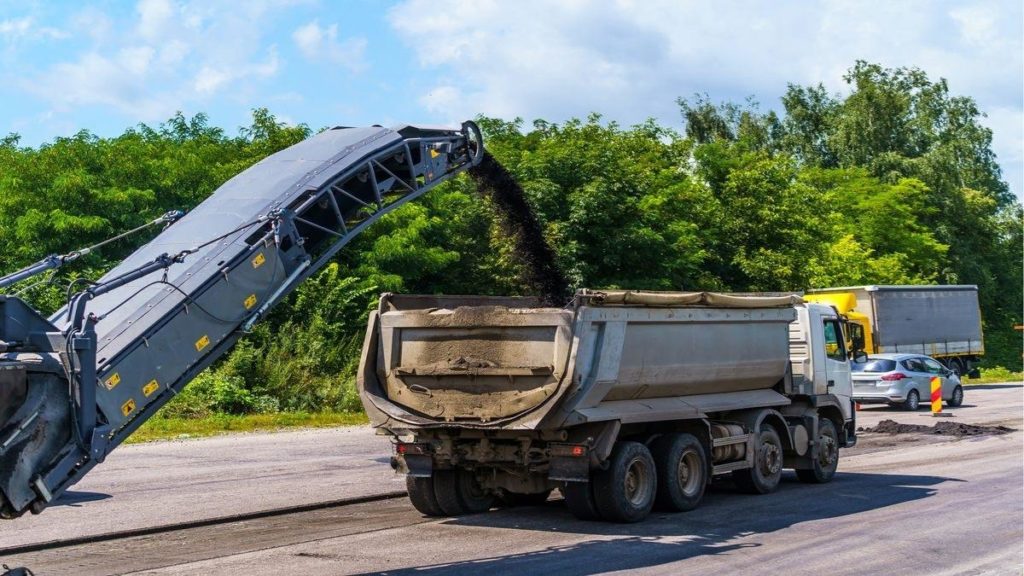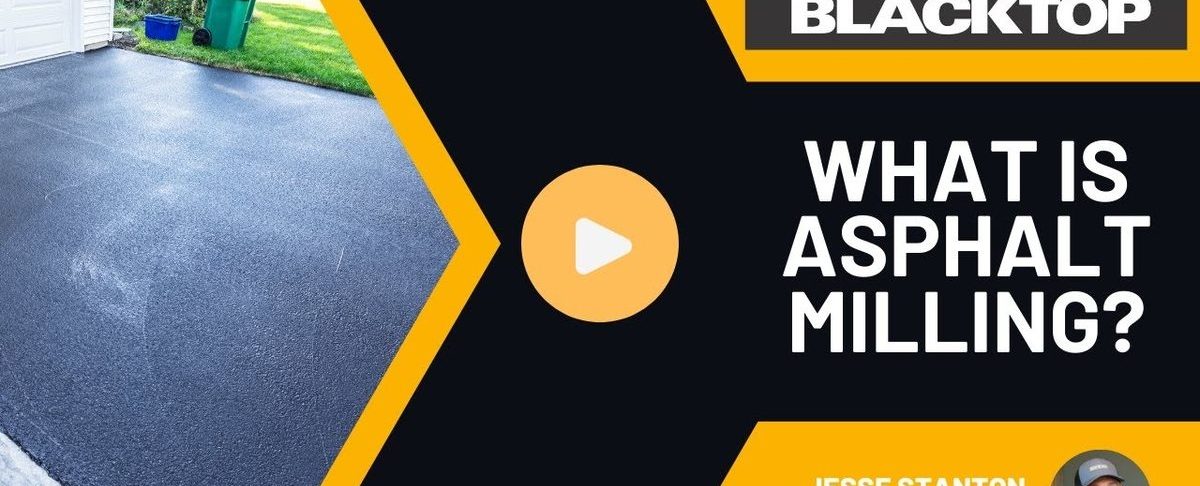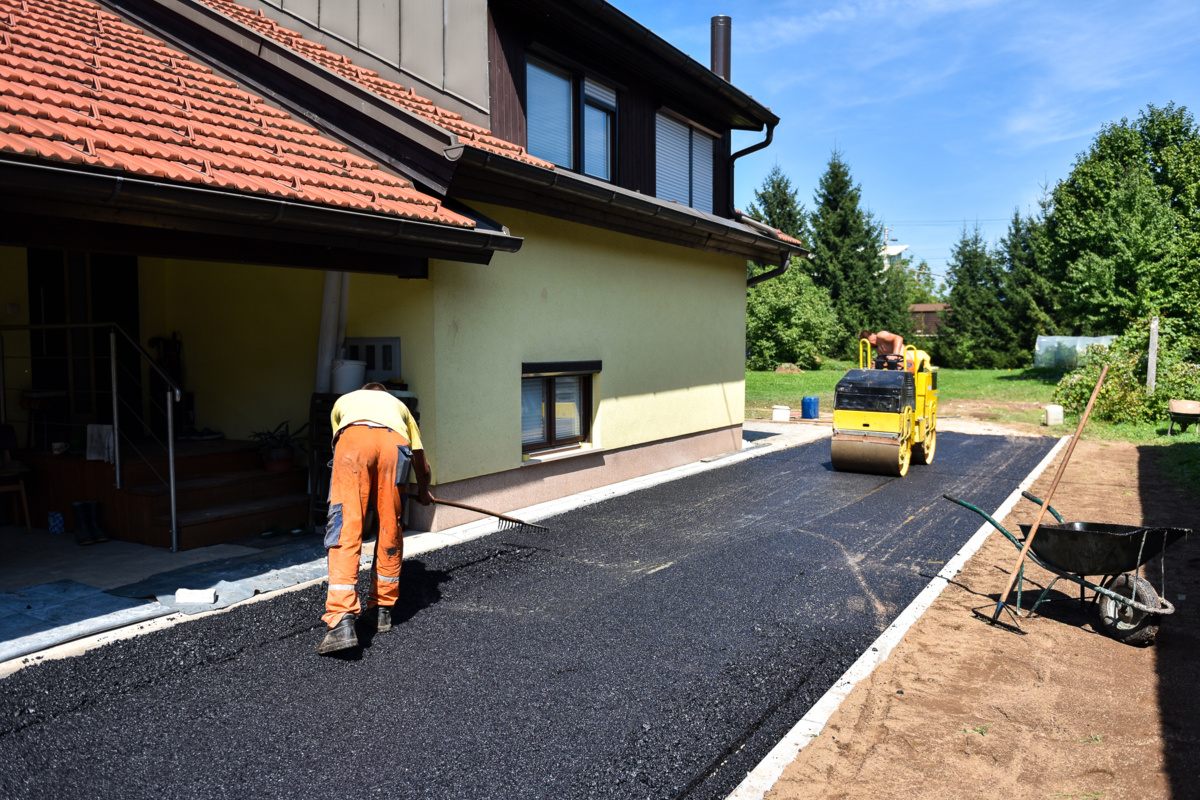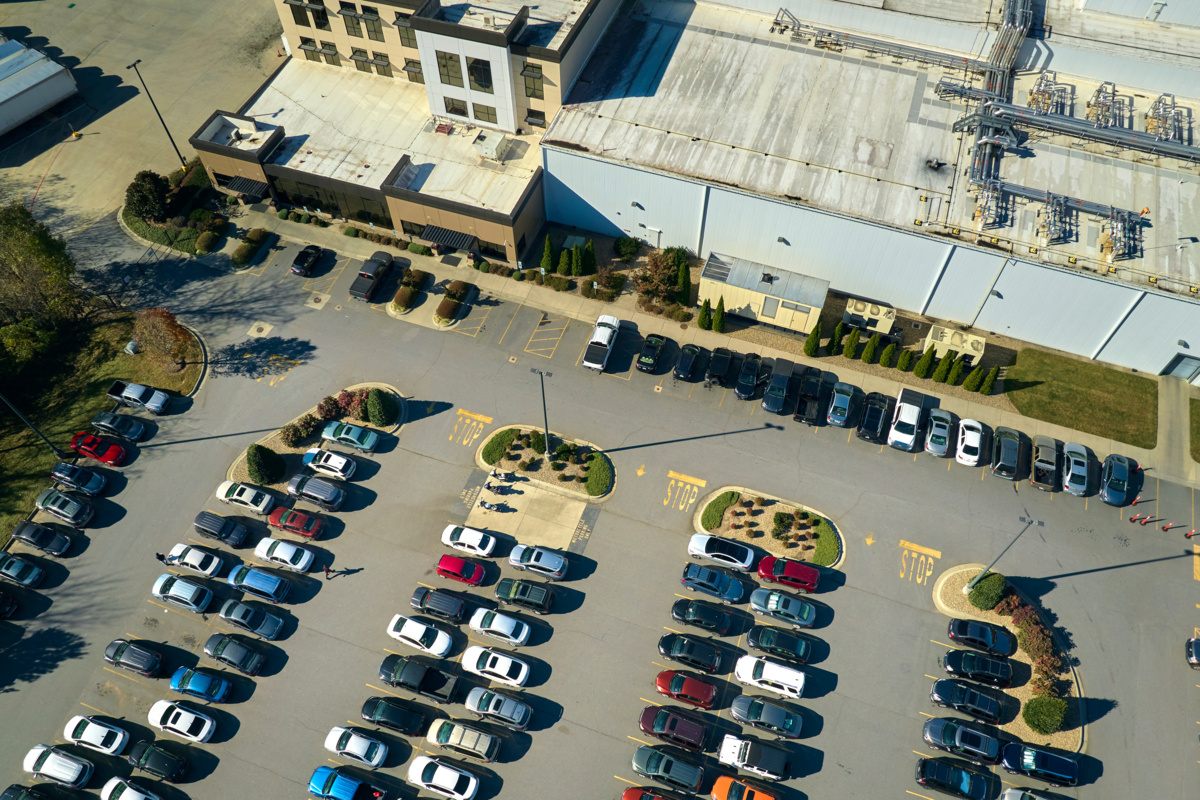Maintaining roads, driveways, and parking lots is essential for safety and longevity. However, a complete replacement can be costly and time-consuming. Asphalt milling provides a cost-effective alternative by removing a portion of the existing pavement, allowing for resurfacing without complete reconstruction. This process saves money and extends the lifespan of asphalt surfaces with minimal disruption.
How Asphalt Milling Works
Asphalt milling involves the controlled removal of a specific thickness of asphalt from a paved surface. A specialized milling machine grinds and removes the old pavement, loading the material into trucks for disposal or recycling. The depth can range from a fraction of an inch to several inches, depending on the condition of the asphalt and the intended use of the surface.
Equipment Used in Asphalt Milling
Asphalt milling is a precise process that requires specialized machinery to effectively remove old pavement and prepare the surface for new asphalt. The type of equipment used often depends on the scale and nature of the project, from large roadways to smaller residential driveways.
- Milling Machines: Large machines that grind and remove the surface in a single pass, making them ideal for roadways and large parking lots.
- Skid Steers with Milling Attachments: These offer flexibility and efficiency for smaller projects like residential driveways.
- Dump Trucks: Transport the removed material for recycling or disposal.
The appropriate combination of specialized tools guarantees that milling projects are completed efficiently and accurately while minimizing disruptions. This careful planning and execution improve the quality of the finished surface and contribute to the pavement’s longevity.
Benefits of Asphalt Milling
Asphalt milling offers a cost-effective and environmentally friendly alternative to complete pavement removal and replacement. This method provides significant advantages for resurfacing projects, from improving structural integrity to reducing overall project costs.
1. Cost Savings
For those looking to manage their overall asphalt paving cost, milling presents a cost-effective alternative to complete pavement removal and replacement. By targeting only the deteriorated top layer, this method significantly reduces material and labor expenses.
2. Material Recycling
Milled asphalt can be reused in new pavement mixtures, reducing waste and the need for new raw materials, making it an environmentally friendly option.
3. Improved Surface Preparation
Milling is an essential ground preparation step for the new surface. It creates a smooth and even surface, providing a strong base for the new asphalt layer, ensuring better adhesion and long-lasting results.
4. Time Efficiency
Milling is quicker than complete asphalt replacement, minimizing downtime for roads and parking lots.
These benefits make asphalt milling a wise choice for many projects. It balances a high-quality outcome with significant savings in time, money, and materials.
When Is Asphalt Milling Used?
In commercial and public infrastructure projects, removing a portion of the existing asphalt pavement surface is common to prepare for resurfacing or repair. Nevertheless, the applicability of this method depends on the size and condition of the pavement.
1. Large Parking Lots and Roadways
Milling machines are standard on highways, city streets, and large parking lots, where they can operate efficiently over large areas.
2. Residential Driveways: Is Milling a Viable Option?
Due to logistical challenges, milling is typically not used for small residential driveways. Milling machines are too large for confined spaces that require frequent repositioning. For these projects, options like skid steers with milling attachments or complete removal might be better suited for asphalt driveway resurfacing.
However, milling can be considered for long residential driveways, such as those spanning 1,000 feet or more, if the surface allows continuous operation without frequent stops.
3. Ideal Conditions for Milling
Milling is a technique sometimes employed within asphalt driveway paving services and works best when the existing asphalt is thick enough for partial removal. When building a multi-layer asphalt driveway or parking lot, milling can remove the top layer while keeping a strong base. This eliminates the need for a complete reconstruction, reducing material and trucking costs.
Potential Limitations of Asphalt Milling
While asphalt milling is a cost-effective and efficient solution for many paving projects, it is not always the right fit for every situation. Several factors, such as the extent of damage, underlying structural issues, and project goals, can limit its viability. Just as we provide asphalt driveway cleaning tips to help homeowners maintain their surfaces, understanding the limitations of milling is essential to choosing the best long-term approach for your property.
Surface Thickness Matters
If the existing asphalt is too thin, milling may not be a viable option. A surface with only three inches of asphalt cannot afford to lose two inches without compromising its structural integrity. In such cases, complete replacement is often necessary.
Equipment Accessibility
Milling machines require space to operate efficiently. Skid steers or alternative removal methods are preferable in areas where frequent maneuvering is needed, such as tight residential spaces or irregularly shaped lots.
Ready to Resurface? See If Asphalt Milling Is Right for You

Asphalt milling is a practical and cost-effective method for resurfacing roads, parking lots, and other large paved areas. It offers significant savings in material and labor while promoting sustainability through recycling. However, its feasibility depends on pavement thickness, project size, and accessibility. Commercial and public sector projects commonly utilize it, but large, open driveways with continuous milling limit its use in residential applications. Contact Richfield Blacktop today to discuss the best solution if you consider resurfacing an asphalt surface.









